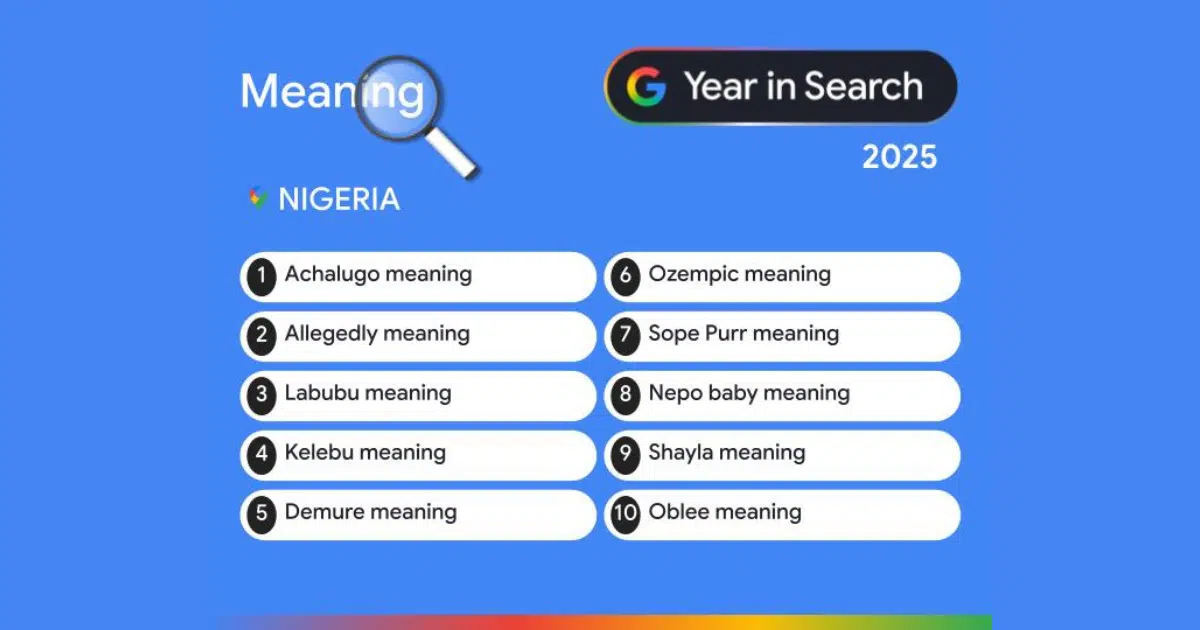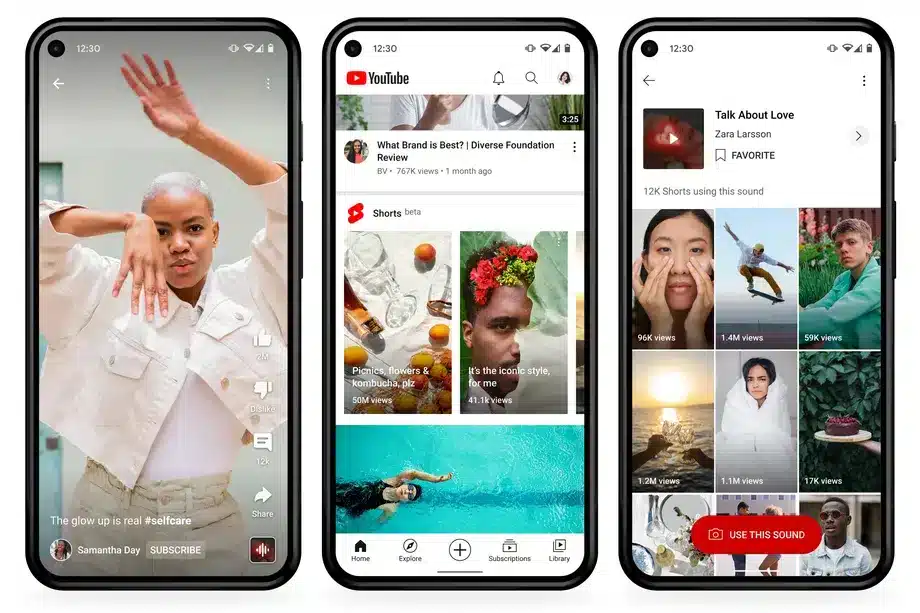Ten years after its initial release, Nigerian singer Skales’ 2015 hit song “Shake Body” has trended all over social media, garnering over 200,000 streams in just ten hours. What triggered this? A TikTok video of popular footballer Lamine Yamal dancing to it.
Sometime in 2024, the song “Gwo Gwo Ngwo” also became a hit on social media after Nigerian comedian, Brain Jotter filmed a hilarious video of himself dancing to it and shared it on TikTok.
What many people didn’t realise was that the song wasn’t new. It was an old highlife song by Mike Ejeagha. Thanks to one viral video, it was reintroduced to a new generation.
These are testaments to the power of TikTok in the circulation of African music.
Music in the media world
Social media has always played a significant role in music circulation and artiste marketing. This trend started in the early 2020s after Instagram and TikTok started gaining ground in the media world.
At first, influencers just wanted a safe place to gather support and showcase their creative talents with a wider audience. Fast forward to 2025, and it’s a full-blown, thriving culture. One area significantly influenced by these platforms, particularly TikTok, is music, especially African music.
“The lockdown allowed people to explore TikTok a little better. During that time, young people were flocking to TikTok and within a year, TikTok was downloaded over a billion times on the Play Store and App Store. TikTok leveraged the first-mover advantage,” says Motolani Alake, Label & Marketing Manager/A&R Coordinator, Africa at Virgin Music.
With the rise of Afrobeats, the African music space has seen massive change. Originally from Africa, particularly Nigeria and Ghana, these sounds have taken over social media, especially for short-form platforms like TikTok.
TikTok’s algorithm is a key player in this dynamic. The platform’s ability to push content to users based on their interests rather than who they follow creates an environment where African music spreads globally.

Victoria Fakiya – Senior Writer
Techpoint Digest
Stop struggling to find your tech career path
Discover in-demand tech skills and build a standout portfolio in this FREE 5-day email course
Its algorithm thrives on discovery, giving even emerging artistes a chance to go viral. A song snippet, sometimes just a few seconds long, can become the soundtrack for millions of videos, ultimately translating into streams, downloads, and mainstream success.
Furthermore, TikTok also encourages remix culture with users adding their flair to songs through dance challenges, transitions, and edits. These edits may add a fast-paced beat to an originally slow song, and this will draw the interest of many users.
Hashtag challenges and user-generated content enable these songs to travel across continents, exposing global audiences to Africa’s rich cultural heritage.
Nigerian artist Kunmie, popularly known for his hit song “Arike,” which recently reached the #2 spot on Spotify’s global viral chart, told Techpoint Africa that TikTok has been influential in breaking out many new acts from Africa, including himself.
“Before my breakout record, I had just 200 followers on TikTok, and now it’s over 200,000. I’m really grateful for the journey and happy to see Arike grow from being made in a home studio to being used by well over three million creators on TikTok and gaining crazy numbers across streaming and other platforms,” Kunmie adds.
Gospel goes viral: The TikTok effect
While Afrobeats has garnered massive support from fandoms all over the world, it is not the only genre topping the charts.
For African gospel music, the platform has become a stage where faith meets digital innovation, allowing songs of praise to reach audiences far beyond church walls.
African gospel songs, with their peculiar rhythms and soulful lyrics, naturally lend themselves to short, impactful videos.
One of TikTok’s most intriguing effects on African gospel music is how it connects generations. Traditional gospel hymns are being remixed with contemporary beats, creating versions that appeal to younger audiences while honouring the genre’s roots.
Viral dance challenges featuring gospel songs invite people of all ages to participate, blending cultural tradition with modern expression.
Recently, Lawrence Oyor’s song “Favour” went viral on social media outlets. Similarly, the song “We’ll Be Many” by Sounds of Salem and the international success of artistes like Limoblaze highlight the significant influence that social media has had on the gospel music scene.
Many gospel artistes today no longer follow the conventional way of sharing and marketing on YouTube and maybe putting forth ads. These days, some artistes do not even use ads before their songs are up on the charts.
Artistes may no longer need massive marketing budgets or traditional industry gatekeepers to get noticed. A single viral TikTok video can introduce millions of listeners to a song overnight, and for many African artists, this has been a game-changer.
The platform has democratised fame, giving independent gospel artistes a space to shine without the backing of major record labels. Local choirs, worship leaders, and solo artistes can share their music with a global audience, sparking collaborations across borders.
The Gen Z choice
In the past few years, TikTok has become the digital playground of choice, and Gen Z are at the heart of this cultural shift.
Generation Z is a generation that craves authenticity and diversity in their music. Unlike previous eras dominated by Western pop, young people today are actively seeking fresh, electric sounds, and African music delivers just that.
This generation isn’t just passively consuming music; it is driving its virality through dance trends, lip-syncing videos, and creative storytelling.
Gen Z users turn songs into moments. The result? Tracks that might have once stayed local now break through to international audiences.
Consider the case of South African singer Tyla, who was just a TikToker in the past, but released her single “Water.” It exploded globally after TikTok users started creating videos to her beat, propelling her onto bigger stages and now earning her a Grammy award.
“In the past, artistes used to rely on TikTok, and they still do, to break a sound and to get people moving. I don’t know exactly what the key is, but I think it’s because TikTok is very young leaning, and when you have young people in the picture, it’s a different game because young people have the power to shape what happens in the next couple of years,” Adebiyi Deola, Digital Marketing Manager at Mavin Records, told Techpoint Africa.
Beyond borders
African music, often sung in indigenous languages or local dialects, is reaching audiences who might not understand the lyrics but feel the rhythm, vibe, and energy. This cross-cultural connection is bridging gaps and fostering a global appreciation for the continent’s artistry.
Artists like Odumodu Blvck, Ayra Starr, Rema, and Fido have all credited TikTok with helping them reach new listeners. In turn, global audiences are embracing African music not as a niche genre but as an essential part of the modern music landscape.
Ugandan artiste, Azawi, and Ghanaian stars like Black Sheriff have also seen their careers propelled by TikTok, proving that an artiste no longer needs major industry backing to achieve success.
“Afrobeats crossed over to the rest of the world because the Internet turned the world into a global village and collapsed the barriers of entry and barriers to experience. The diaspora were very key evangelists in breaking the bias for Afrobeats to reach other continents,” Alake says.
According to music journalist and podcaster, Joey Akan, “TikTok played the role of a catalyst of some sort because TikTok opened a new dimension to marketing. TikTok plugged us into the global pop space. It put us on the world carousels where other cultures get to show up, and now we do too.”
Why TikTok?
According to Intelpoint, 93% of Internet users globally are active on social media, with African users spending almost four hours daily on these platforms in 2024.
Currently, TikTok is the second most popular platform in Africa after Facebook, and this stat is not just for the younger generation but for anyone on the Internet.
In Africa, the platform has over 37 million users in Egypt and 17 million in South Africa. Nigeria also ranks second among its most active users in Africa and 17th globally, with 23.84 million users.
In the crowded world of social media, TikTok has carved out its own space. However, what exactly makes TikTok so different from other platforms like Instagram, Twitter, or YouTube? And why has it become such a powerful force for African artistes?
Unlike other platforms, where users typically see content from people they follow or those who follow those they follow, TikTok’s “For You” page serves a curated feed of videos based on user preferences, whether they follow the creator or not.
This discovery-first approach levels the playing field in a way that platforms like Instagram and YouTube simply don’t.
While platforms like Instagram and YouTube added music features as an afterthought, TikTok was built around music and sound. Every video on TikTok has an audio element, and users can easily explore more content using the same sound.
Also, TikTok thrives on participation. Unlike platforms like YouTube, where content creation can be complex and time-consuming, TikTok makes it easy for anyone to contribute to a trend.
On platforms like Spotify, breaking into a top playlist can be tough for an independent artiste. TikTok, however, allows songs to go viral without industry intervention. A song can go from obscurity to a global hit in a matter of weeks.
The right music meets opportunity
According to Gideon Akhigbe, CEO of Soundmac, a musictech startup, beyond amplifying Afrobeats, Amapiano, and Afropop, TikTok is also turning artistes into influencers.
“This has helped us compete on global stages. It would cost thousands, if not millions of dollars, to boost a particular song, but TikTok is bridging that gap. This is what makes TikTok interesting, its algorithms cannot be manipulated by a third party, which is why a no-name artist can go viral,” Akhigbe says.
“Artists like Shallipoppi came on the global stage with the hit song “Elon Musk,” which has reached other continents. He brought a song that many street people could relate to. Those were his target audience, and now basically everyone listens to it.”
TikTok allows everyone to shine regardless of who they are and what they offer, which makes things better because, ultimately, music is for everyone.
“The platform’s algorithm knows you; the algorithm will figure you out. From what I’ve seen, TikTok has allowed people to know more of themselves because what it does is learn everything about you and serves content with that. Some people are finding out things about themselves via TikTok,” Adebiyi says.
Akan adds that, “TikTok is a numbers game from every aspect of it. The more, the merrier. The more you chuck into the system, the more it spits out for you. You embrace the algorithm; the algorithm embraces you.
“It’s a numbers game; everyone plays that game; everyone wins.”











